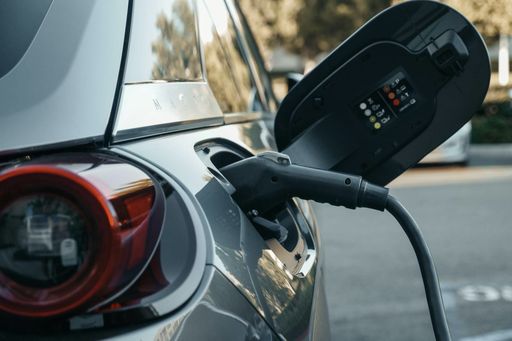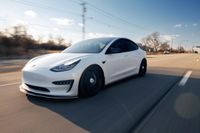Chinese Carmakers Threaten US Auto Industry as EV Sales Soar
Chinese automakers are rapidly gaining ground in the global electric vehicle (EV) market, posing a threat to the US auto industry. Elon Musk, CEO of Tesla, who once dismissed Chinese automakers, now warns of their potential dominance. Chinese EV maker BYD has already surpassed Tesla as the best-selling EV brand globally, with a one-third market share. While American automakers focus on high-priced luxury EV models, Chinese brands offer a range of options at various price points. China's ability to expand its offerings is due to lower production costs and its meticulous development of the EV supply chain. To stay competitive, US automakers must develop more affordable EV options.

Chinese Carmakers Gain Market Share in EV Industry
Chinese automakers, once dismissed by the US auto industry, are now posing a threat with their rapid growth in the global EV market. Elon Musk, CEO of Tesla, who previously laughed off Chinese companies, now warns that Chinese EVs could dominate American automakers if allowed to enter the US market.
BYD, a Chinese automaker, has already become the largest-selling EV brand globally, surpassing Tesla. It currently holds a one-third market share. The success of Chinese automakers is attributed to their diverse range of EV models across different price points, compared to American automakers' focus on high-priced luxury EVs.
China's Advantage in EV Production and Distribution
China's advantage in the EV market is due to lower production costs and its strategic development of the EV supply chain. While American automakers still struggle to source raw materials and parts, Chinese companies have established a strong domestic ecosystem of suppliers.
Furthermore, Chinese automakers have been able to expand their reach globally, including the planned entry into the US market. The US automakers' challenge lies in their higher labor costs and limited product offerings compared to the more diverse options provided by Chinese brands.
Expansion Strategies and Trade Barriers
To expand beyond the domestic market, Chinese automakers are exploring opportunities in other countries, such as Europe and the US. Chinese brands like BYD, Chery, and SAIC are in discussions with the Mexican government to establish operations there as a launchpad for the US market.
However, trade barriers and tariffs create obstacles for Chinese EVs entering the US market. The current 25% tariff on Chinese EV imports could be circumvented by manufacturing EVs in Mexico, as they would be considered North American-made and subject to lighter restrictions.
The US government aims to foster the development of an EV-parts ecosystem to support the domestic industry through grants and incentives. The rise of Chinese national champions has sparked debates about protectionism versus consumer access to cheap EVs.
The Future of the Auto Industry and Global Competition
The rise of Chinese automakers in the global EV market poses existential questions for the auto industry worldwide. The US faces the tradeoff between protecting its auto industry and offering consumers affordable EV options.
Chinese automakers are determined to dominate the global market, but they face challenges such as slower domestic demand and a highly competitive industry. To maintain their growth, Chinese brands must expand to new markets, including the US.
The outcome of the competition between Chinese and American automakers remains uncertain. Data privacy and national security concerns surrounding EVs add complexity to the debate. While American automakers strive to develop more affordable EVs, Tesla holds the potential to lead with its promised $25,000 car. The transformation of the auto industry is inevitable.


